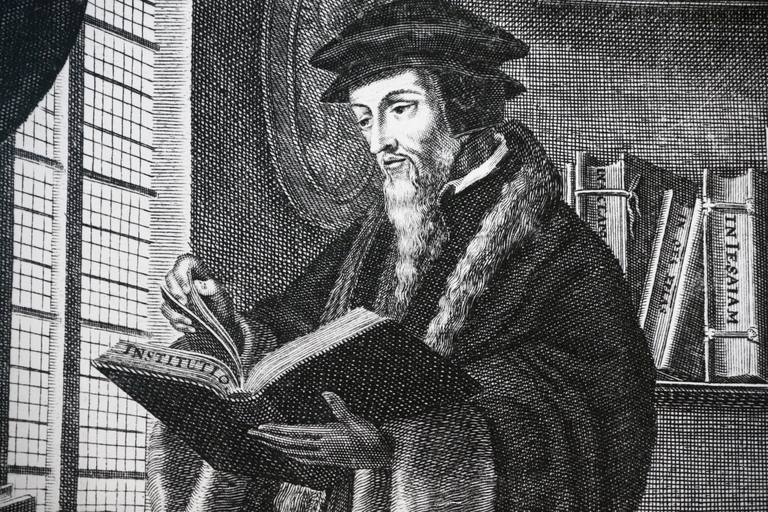According to Thomas Brooks, ‘as a Christian is never out of the reach of God’s hand, so he is never out of the view of God’s eye’. It is a consoling truth which every wise Christian takes to heart. For life, the Christian life, can be hard. Losses and crosses are the lot of those who follow Jesus. As Peter warned, we may have ‘to suffer grief in all kinds of trials’ (1 Peter 1:6). The Bible negates the false optimism of ‘health and wealth’ advocates, whose pernicious assurance of lives free from trouble flies in the face of biblical portraits of God’s children. Job is a case in point.
Deafening silence
The testimony as to his godliness is unequivocal, both from the author of the book of Job and from God himself (Job 1:1, 8). Yet Job loses all his children, his economic livelihood, and ultimately his health.
In a welter of Satanic opposition, Job is left destitute of all support. His friends deride him with a theology which offers instant reversal of his misfortune if he were only to repent of his sin. Specific sin there was not, of course. But like their modern counterparts who deal in guilt, Job’s comforters were insistent that trouble was always the sign of a reckless life. Their contribution only added to Job’s difficulties.
The greatest difficulty for Job, however, came from God’s silence. The silence of God can be deafening. Elizabeth Elliot puts it succinctly: ‘God knows the way that he takes; you don’t know his’. The demand for an explanation of God’s ways is understandable, but not forthcoming. Not until chapter 38 does God speak, and even then he speaks from the midst of a storm.
Designed to teach
It is all designed to teach Job a fundamental lesson, namely that God is other than we are. God’s first words are combative: ‘Brace yourself like a man’ (Job 38:2). Job is being summoned to wrestle with God! But what kind of match is it? Not a meeting of equals! The very first question is enough to bring Job to the floor in submission: ‘Where were you when I laid the earth’s foundation?’ (Job 38:3).

The point of all this is to bring Job to acknowledge what theologians refer to as ‘the Creator-creature distinction’. God must be acknowledged for what he is: sovereign! That is the issue at stake in the providence of Job’s trials. Will Job submit to God’s majesty or will he not?
God’s providence is the unceasing activity of the sovereign Creator, whereby he upholds his creation in orderly existence and guides and governs all events, circumstances and free acts of men and angels, no matter how great or trivial. All of this is done to accomplish one great design, that is, to give glory to himself.
No obligation
That is the way it is, even when we cannot make it out to be so. When Job finally acknowledges God’s right to do as he pleases (though God never acts tyrannically), Job’s response, depicted so graphically in Job 40:4, is to place his hand over his mouth. Job is expressing a truth about the sovereignty of God, namely, that God is under no obligation to explain himself. ‘I know that you can do all things, no plan of yours can be thwarted,’ Job confesses (Job 42:2).
God’s ways are incomprehensible, not in the sense that he cannot be known at all, but that he cannot be known fully. What we know of God we know because he has disclosed himself. That was Calvin’s contribution in the opening section of his Institutes of the Christian Religion (1559). It was the way he understood the message of Job and the providence of God.
We may not be able to understand what God is doing, because we cannot comprehend God as he is in himself. ‘For my thoughts are not your thoughts, neither are your ways my ways’, says God (Isaiah 55:8). Providence is not an acknowledgement that we can make sense of what God is doing; it is an acknowledgement that he can make sense of it and that is all that matters. We are not called upon to explain providence, but to trust the God of providence.

Faith is the key
Faith is the key that unlocks the door of dark providences. ‘Faith’, wrote Calvin, ‘ought to penetrate more deeply, namely having found Him Creator of all . . . to conclude He is also everlasting Governor and Preserver not only in that He drives the celestial frame… but also in that He sustains, nourishes, and cares for everything He has made, even to the least sparrow’.
Reading Job from this perspective enables us to prepare for whatever may come, in the certainty that nothing will overtake us that takes God by surprise. There is a divine plan at work in our lives. It is the plan of a sovereign, yet gracious Lord. William Cowper got it right:
Judge not the Lord by feeble sense,
But trust Him for His grace;
Behind a frowning providence
He hides a smiling face.
Derek Thomas is assistant Professor of Systematic and Practical Theology, and Dean of Chapel at the Reformed Theological Seminary, Jackson, Mississippi.






